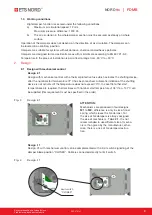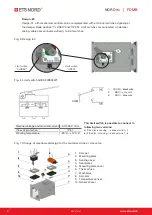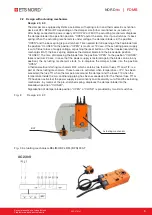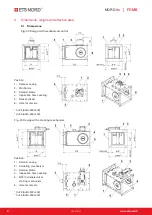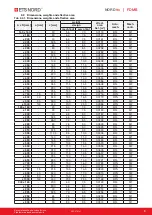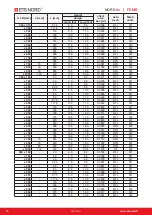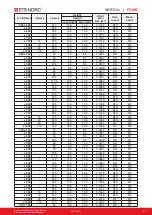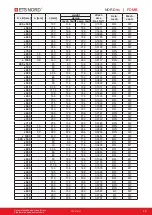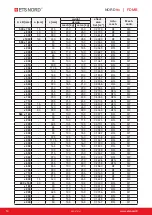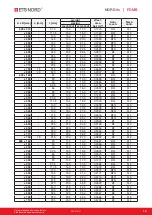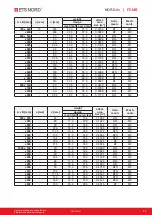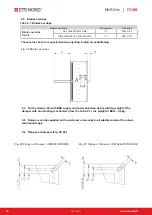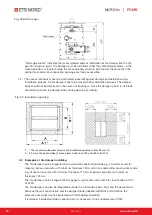
Kuvamateriaali on havainnollistava
Pidätämme oikeuden muutoksiin
RDT-07-0121
5
®
NORD
fire
|
FDMB
2.2 Design with actuating mechanism
Design .40, .50
The damper are equipped by Belimo actuators with spring return and thermoelectric activation
device of BFL, BFN or BF depending on the damper size (furher mentioned as „actuators“).
After being connected to power supply AC/DC 24V or 230V, the actuating mechanism displaces
the damper blade into operation position ”OPEN” and at the same time it pre-stretches its back
spring. When the actuating mechanism is under voltage, the damper blade is in the position
”OPEN” and the back spring is pre-stretched. Time needed for full opening of the flap blade from
the position ”CLOSED” to the position ”OPEN” is maximum 120 sec. If the actuating power supply
is cut off (due to loss of supply voltage, or pushing the reset button on the thermoelectrical starting
mechanism BAT), the back spring displaces the damper blade into the breakdown position
”CLOSED”. The time of displacing the blade from the position ”OPEN” to the position ”CLOSED”
takes maximum 20 sec. In case that the power supply is restored again (the blade can be in any
position), the actuating mechanism starts to re-displace the damper blade into the position
”OPEN”.
A thermoelectrical starting mechanism BAT, which contains two thermal fuses Tf1 and Tf2, is a
part of the actuating mechanism. These fuses are activated when tempe72°C has been
exceeded (the fuse Tf1 when the temperature around the damper and the fuses Tf2 when the
temperature inside the air-conditioning piping has been exceeded). After the thermal fuse Tf1 or
Tf2 has been activated, the power supply is permanently and irreversibly cut off and the actuating
mechanism, by means of the pre-stretched spring, displaces the damper blade into the
breakdown position ”CLOSED”.
Signalisation of damper blade position ”OPEN” a ”CLOSE” is provided by two limit switches.
Fig. 8 Design .40, .50
Fig. 9 Actuating mechanism BELIMO BFL BFL (BFN) 230-T
AC230 V
BAT
Actuating mechanism



